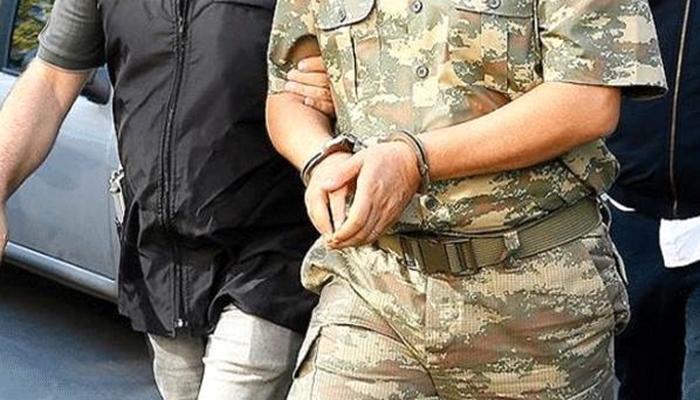Forty-six more military members have been detained in the last 24 hours over alleged links to the faith-based Gülen movement, as part of investigations launched by the Kastamonu, Adıyaman and Merzifon chief public prosecutor’s offices, the state-run Anadolu news agency reported.
The Gülen movement is accused by the Turkish government of mounting a coup attempt in July 2016. The movement strongly denies any involvement.
The ruling Justice and Development Party (AKP) government dismissed a total of 24,977 military members including 150 generals, 4,630 officers, 2,167 noncommissioned officers, 1,210 specialized sergeants, 411 civil servants and workers, and 16,409 cadets following the failed coup over their claimed links to the Gülen movement.
The government has up until now employed a total of 15,850 military personnel including 1,763 officers, 4,135 noncommissioned officers, 3,698 specialized sergeants, 6,162 contracted privates and 92 civil servants, the report said.
The Turkish government announced on Jan. 2 that it would enlist 42,938 new military personnel. A total of 3,755 officers, 5,375 noncommissioned officers, 13,213 specialized sergeants and 20,595 contracted privates are planned to fill the ranks.
In February 2017 Defense Minister Fikri Işık said 30,000 new recruits would be enlisted in the Turkish military.
Official statements claim that a total of 8,651 military members including cadets and privates took part in the failed coup.
Director General of Public Security Selami Altınok on Dec. 12 said 22,987 police officers have been dismissed over alleged links to the Gülen movement.
“If it was a coup perpetrated by the Gülen movement and 25,000 military personnel and 22,987 police officers were dismissed for their connections to the movement, why did only 8,651 military members including cadets and privates participate in the coup?” is a question being asked by critics.
The government has been at the center of criticism for turning the Turkish forces into a political Islamist military in line with the wishes of President Recep Tayyip Erdoğan.
A military officer candidate was reportedly asked questions about the Quran and the anti-government Gezi protests of 2013 during an interview in October 2017.
In June, an imam-hatip, or religious high school, in İzmir province promised its graduates preference in enrollment at military and police academies.
Some find the Turkish government’s efforts to Islamicize the Turkish army alarming and warn that NATO risks having a member army filled with extremists.
In February of last year Henri Barkey, director of the Middle East Program at the Washington-based Wilson Center, said that many generals purged by the Turkish government are pro-NATO and pro-American, saying this could create a shift in Turkey-NATO relations.

